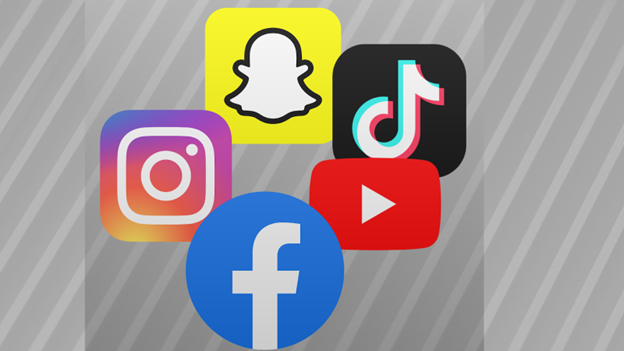By Pen Fang
Seattle Public Schools have filed a lawsuit against big social media companies, seeking to hold them accountable for their negative impacts on children’s mental health.
The schools argue that the big social media companies, which include Meta (Facebook, Instagram), Google (YouTube), Snapchat, and ByteDance (TikTok), intentionally design their platforms to “exploit the psychology and neurophysiology of their users into spending more and more time on their platforms”, thus pushing children into spending unhealthy amounts of time on social media. Furthermore, it argues that companies often promote harmful or exploitative content to children, further heightening the negative impacts on mental health. Seattle Public Schools also said that it does not have enough staff to aid students who come seeking mental-health counseling. The lawsuit also asked for financial compensation for the district.
“The mental health costs to students, the amount of time schools have to spend monitoring and responding to social media drama, is exorbitant. It is ridiculous that schools are responsible for the damages caused by these social media platforms to young people. Nobody is seeing the kinds of cumulative effects that social media is causing to the extent school districts are,” Josh Golin, executive director of a nonprofit working to protect children from marketing and commercialization, stated.
This lawsuit comes in the midst of America’s youth mental health crisis. According to the National Alliance on Mental Illness, 1 in 6 U.S. youth (6-17) experience a mental health disorder each year, and suicide is the second leading cause of death among people aged 10-14. “Millions of young people are struggling with bullying, violence, trauma and mental health,” President Biden wrote in an op-ed in The Wall Street Journal. “We must hold social-media companies accountable for the experiment they are running on our children for profit.”
Independent research has also highlighted correlations between increased social media usage and detriments to mental wellbeing; the lawsuit itself cites several studies concluding such. Yet a majority of teens say it would be hard to give up social media. And the pandemic only exacerbated social media use: when education and the workforce switched to online calling, teens often plunged themselves into social media.
Still, social media companies are protected legally. Section 230 of the 1996 Communications Decency Act protects online service providers from liability regarding what third-party users post on their platforms. Furthermore, many social media companies have claimed to increase their safety features for children and teens. Meta, for example, disallows content promoting suicide, self-harm, and eating disorders, and also has technologies for age-verification and screen time limits in place. But in 2021, a Facebook whistleblower testified before Congress, revealing that executives knew about the risks of the company’s products towards children, yet hid research regarding them. “If we lose the teen foothold in the U.S. we lose the pipeline,” an Instagram internal memo read regarding the company’s marketing strategy.
Aside from and in tandem with holding social media companies accountable, the lawsuit seeks to label their actions a “public nuisance” — which, under Washington law, is defined as any unlawful act or omission done to perform an action that endangers a considerable number of people — have the social media companies cease their harmful practices, and receive financial compensation and “equitable relief to fund prevention education and treatment for excessive and problematic use of social media,” according to the lawsuit submitted January 6th.
Journalists and experts have pointed out the uncertainty of the case. Some have drawn parallels between this and other, more successful cases against big industries. Public nuisance claims have been used in the past on varying levels by those seeking to hold industries accountable, such as the pharmaceutical industry for the opioid crisis and vaping companies for teen vaping. Perhaps most successfully, they helped in securing the $246 billion settlement from the tobacco industry, which is in line with what Seattle Public Schools wants to achieve with this case. Seattle Public Schools’ choice to pursue the algorithms the social media companies use rather than the content may also sway the court in their favor. However, other experts note that not many services are held accountable for addicting customers, such as casinos and gambling, and the case does not have much standing. The nature of product marketing, after all, is to increase product usage. Others have noted the benefits of social media (in Seattle itself, graduation rates have risen since 2019, a time when social media use increased due to the pandemic) and also the difficulty in proving a direct causal effect between social media and mental unwellness, at least scientifically.
The case could have a hand in reshaping the internet if it wins. It falls with an ongoing California lawsuit combining more than 130 individual cases against social media companies with similar reasoning and the pending hearing of Gonzalez vs. Google, a case set to challenge Section 230, at the Supreme Court. The nation is beginning to seek accountability for social media companies, and the Seattle schools case — whether win or lose — could raise public attention and interest.
“Our students — and young people everywhere — face unprecedented learning and life struggles that are amplified by the negative impacts of increased screen time, unfiltered content, and potentially addictive properties of social media,” Seattle Superintendent Brent Jones said in a statement. “We are confident and hopeful that this lawsuit is a significant step toward reversing this trend for our students.”

